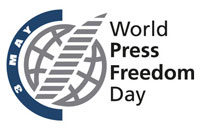World press backs UK media industry's self-regulatory proposal

WAN-IFRA backs the industry-proposed Royal Charter for independent self-regulation of the press that has been formally submitted to the Privy Council Office by the Newspaper Society, the Newspaper Publishers Association, the Scottish Newspaper Society, and the Professional Publishers Association for the magazine industry.
The Independent Royal Charter seeks to distance politicians from the regulation process, countering the proposed statutory underpinning of the press that lies at the heart of the government's Royal Charter.
"The Leveson inquiry asked many important questions of the British press, to which the industry, not the government, was always best-placed to answer," said WAN-IFRA in a statement. "The industry has proposed a sound response to attempts to implement regulation, which would threaten the independence of the British press, and send shockwaves around the world regarding the UK's commitment to safeguarding press freedom."
Support of majority of UK newspapers, magazines
National, regional and local newspapers and magazines have been fully involved in devising the Independent Royal Charter. The industry response has the support of the overwhelming majority of UK newspapers and magazines, both locally and nationally, as well as backing from a number of senior members of Parliament and Peers in the House of Lords.
WAN-IFRA, the global organisation for the world's newspapers and news publishers, represents 18,000 newspapers, 15,000 online sites and more than 3,000 companies in 120 countries. Along with press freedom organisations and human rights groups worldwide, WAN-IFRA rejects statutory underpinning for press regulation and has persistently warned of the implications of such proposals for press freedom globally.
The organisation believes that 300 years of democratic tradition and press independence in the United Kingdom are at stake, while oppressive regimes around the world would undoubtedly seize on such a precedent to justify their use of statutory regulation to silence critical voices in the press.
Such legislation would also be a major setback for those countries making tentative but steady progress towards press freedom, and who are influenced by the United Kingdom's democratic model, it says.




